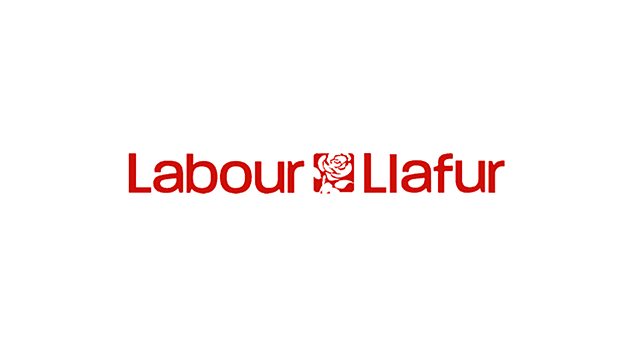 Poverty
Poverty 
After a busy summer at the National Assembly with three parties electing new leaders, attention has turned this autumn to the Labour Party. To complete our series of articles, this week the three candidates set out how they would solve poverty if they win.
Today it is the turn of Mark Drakeford, Assembly Member for Cardiff West
Ever since the onset of devolution, the challenge of responding to poverty has been at the forefront of political debate. In my view, that debate has often been unhelpfully framed. It has failed to distinguish between those policy levers which lie in the hands of the National Assembly, and those which remain at Westminster. It has, at times, led to a focus on actions which are only weakly within devolved control, and an insufficient recognition of those practical measures which have been taken by successive Welsh Labour administrations.
For some, especially those who believe that the future of Wales is best served by concentrating on bringing about the breakup of the United Kingdom, the answer is to devolve further powers in this field to the Assembly. I have always been a committed devolutionist, usually campaigning for the Labour Party to go further and faster in placing decisions which affect only Wales in the hands of the Welsh people. But, when it comes to devolution of macroeconomic policy and the social security system, I take a different view. For me, solving poverty in Wales is best achieved by a radical, redistributing Labour Government at Westminster, determined to provide Wales with a flow of funds which match our needs.
For families and individuals that means a reversal in the policies which really are to blame for household poverty – the bedroom tax, the freeze on benefits, the attack on child benefit, the botched introduction of Universal Credit and so on. For public services, it means funding which does not pitch one vital service against another, but which provides the investment which is needed to repair the damage caused by the longest and deepest period of austerity in our history.
Of course, that does not mean that there are vitally important actions which a Welsh Government cannot take to support and shape the Welsh economy. It is why I chose to make the economy the first of a series of policy events which I am holding during the leadership campaign, emphasising a commitment to invest in digital and physical infrastructure, to bring jobs closer to home, to fair work and to making a reality of our new Economic Contract.
When I think about what a Welsh Labour Government can do to tackle poverty in the here and now, however, then I think of what Barbara Castle would have called the ‘social wage’ – the services which government can provide, collectively, on behalf of us all, and which, otherwise would have to be paid for from household budgets. These ‘cash-equivalent’ services have the direct effect of freeing up money in families’ pockets, thus far held back for other purposes by austerity. And, to paraphrase Beveridge, a pound left in the budget of a family on the margin of managing, is a pound that matters far more than the same amount in the budget of the better off.
Looked at in this way, I believe that the record of successive Labour Governments in Wales deserves more credit that is often provided. Only this weekend, as I write this note, I have been contacted by a family whose daughter has moved to live in Bristol. Last week she attended her new GP. Later that day she contacted her parents to ask which one of the three prescriptions her GP provided she should take to the chemist. Each of those prescriptions cost £8.80, so all three would require £26.40.
There are many, many families in Wales where control of chronic conditions require three or more medicines every week. On that score alone such a household would be £1,372.80 a year better off in Wales than a family in the same circumstances without a Welsh Labour Government. Indeed, in the same week as this is written, the English NHS has been in the news again because of the rapid rise in car parking charges at English Hospitals, charges described by Unison head of health Sara Gorton as ‘immoral’, which have been abolished here in Wales.
In the draft budget I laid in the National Assembly at the start of October, we again boosted the funding of the successor to the Social Fund in Wales – a fund which puts money directly into the pockets of the poorest households in the land. In the same month, the Guardian reported that the parallel system in England, ‘set up less than five years ago to provide emergency help to England’s poorest families is on the verge of collapse’. In the draft budget, the Labour Government in Wales decided to find £244 million again next year to retain Council Tax Benefit. Compared to what has happened to poorest households in England, this is a cash-equivalent of over £190. Given our record, the devolution of the administration of the benefit system has to merit serious consideration.
These are just a small number of a concerted, deliberate policy approaches taken here in Wales. The list could be extended by citing examples from the very first Assembly term – abolishing entry charges to museums and galleries in Wales – to the most recent, in which we have found new money, from our declining budget, to create the only national network in the United Kingdom of schools open during the long summer holidays, to make sure that children go on having food to eat.
Of course, I understand, and agree, that more needs and can be done to grow the Welsh economy and secure prosperity for the future. But the children in our schools today have only one childhood. They cannot wait for a new economy to arise to provide them with the help they need in the here-and-now. That is why, if I am the new Labour Leader and First Minister, I want a new concentration on the levers that lie directly in our own hands – the extra investment in the youth service announced in the draft Budget, the doubling of the money provided for the new and extended school uniform grant, the guarantee that money for the 3,000 extra children who will now be entitled to free school meals in Wales will be paid for by the Welsh Government, not by schools themselves. That is a powerful start in a single budget, especially in an age of austerity.
But there is more that we can do; more that puts the focus on the things which a devolved government can do, immediately, to make a difference in the lives of families and children. There is frequently a so-called ‘poverty premium’ for consumers, where the poorest families have little opinion but to shop in the parts of the market which turn out to be the most expensive, whether that is for food or energy or credit or telecoms. I described our proposals on 2 October, as a ‘bread and butter budget’, because it focuses on the things which matter most to Welsh citizens every day. If I become Labour Leader and First Minister, I want to lead a bread and butter Government, focused on the practical ways in which we can erode the poverty premium in life line services which none of us can do without in the 21st century.
Indeed, I stand in the election for a revitalised form of 21st century socialism, determined in its pursuit of equality to resist the ‘sink or swim’ society which, here in Wales, holds no attraction, even among those lucky enough to be swimming. I firmly believe it is the responsibility of government at all levels to take on, rather than exacerbate, the inequalities which so many face at birth, reversing them wherever possible through risk-sharing and redistribution. For those who need the help of a Welsh Labour Government the most, it means taking those actions which liberate money in their pockets and which strengthen the bonds of a society built on the fundamental principle that what affects any one of us, affects us all.


